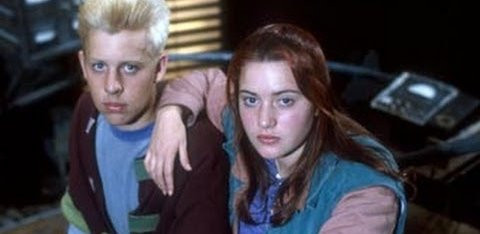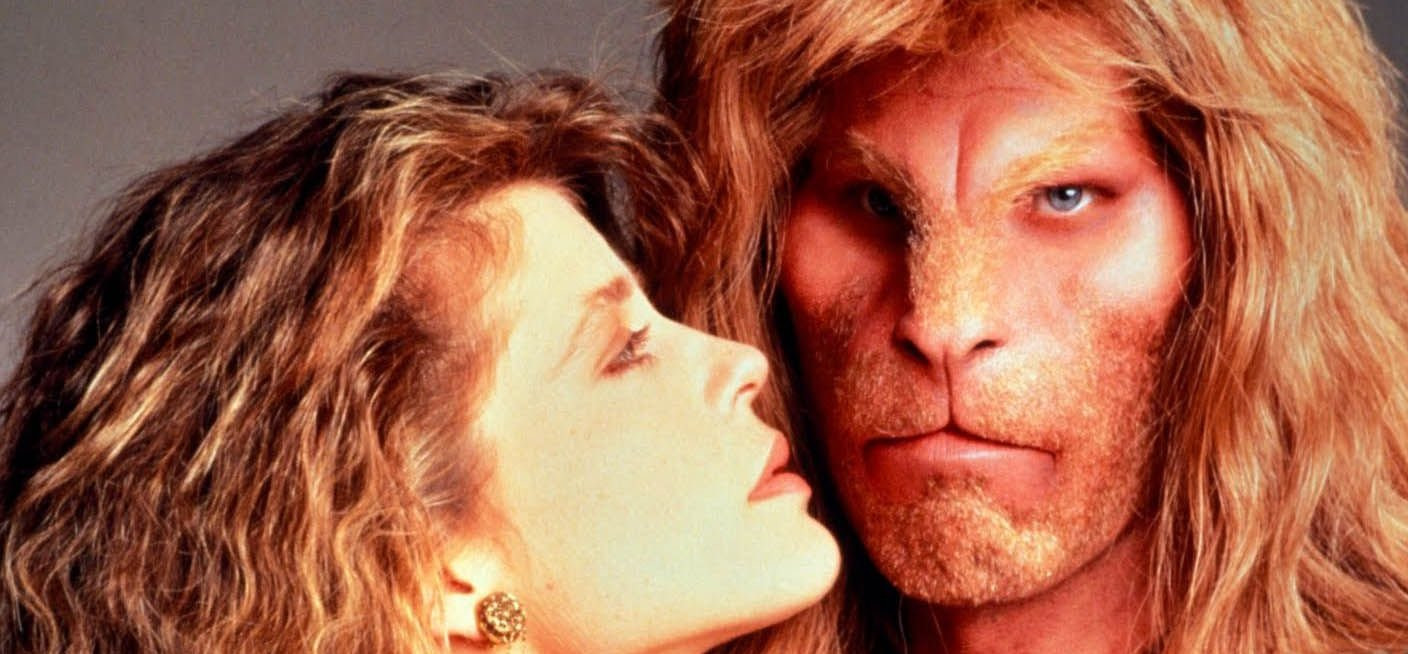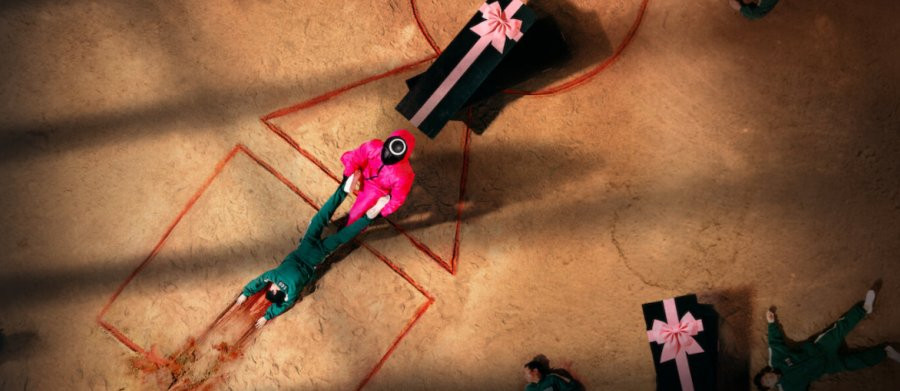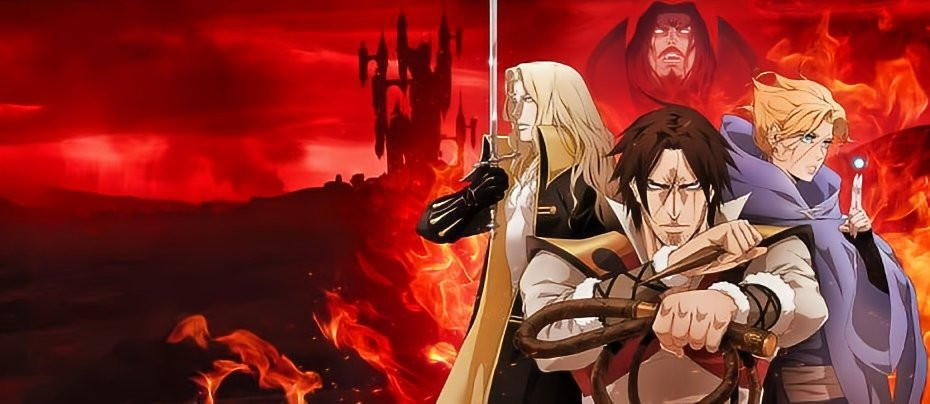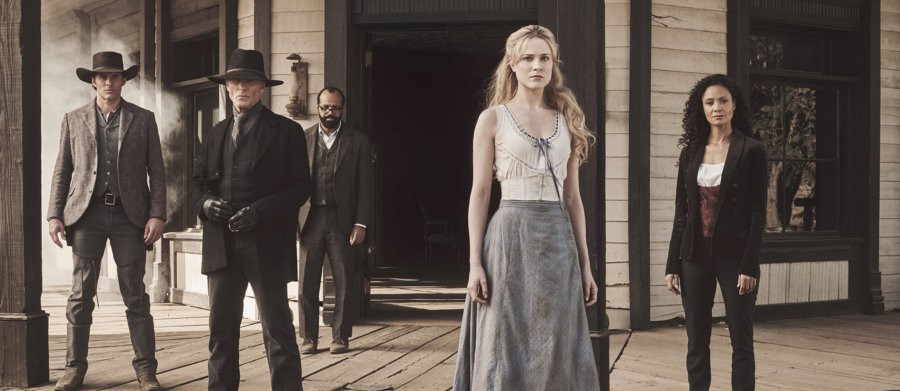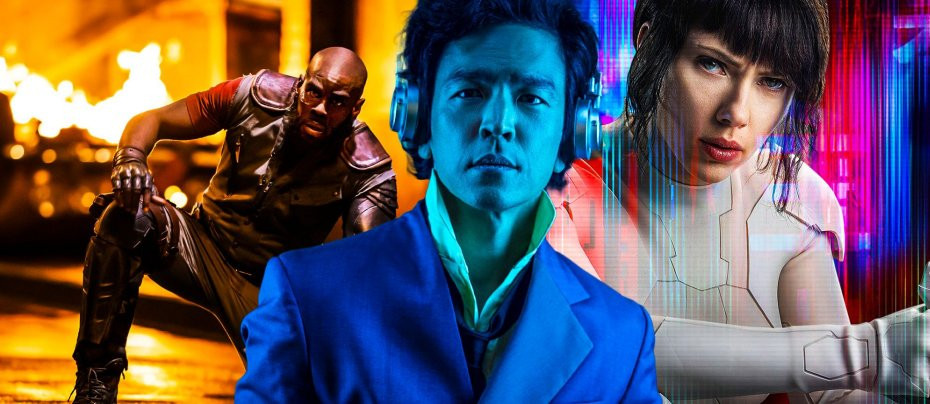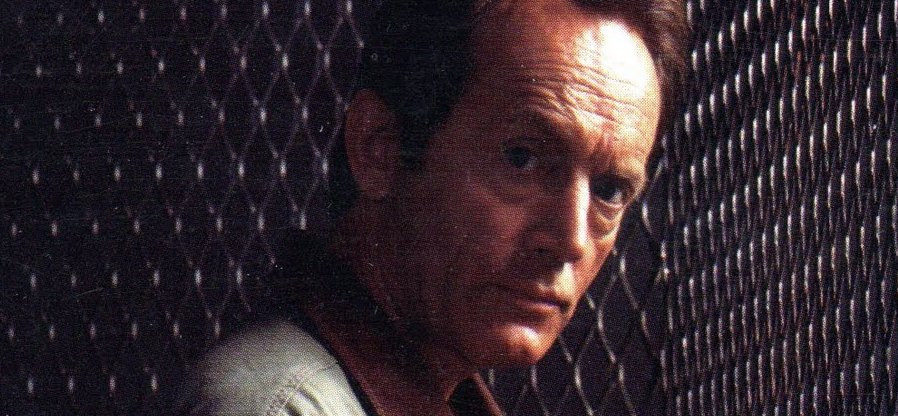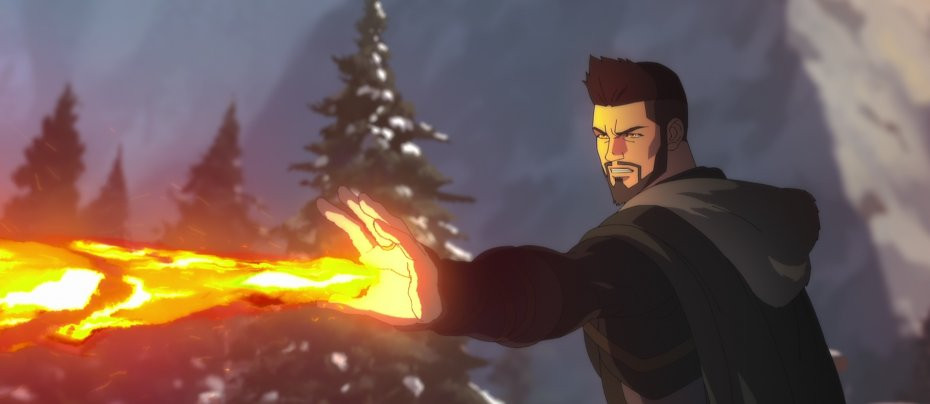
The Witcher: Nightmare of the Wolf
2021 - South Korea Usa Poland‘a superior example of an increasingly common type, the violent animated fantasy for adults and older teenagers’
Review by John Winterson Richards
Now that The Witcher is being quoted generally as a case study in how not to run a television franchise based on an established intellectual property, it is worth remembering that it was once very popular. Indeed, many of those who are now particularly negative about it seem to have forgotten the positive things they said about it previously. Whether this critical "retconning" is a reaction caused by disappointment or going with the flow as the tide changes only they can say. Perhaps they do not really know themselves.
This reviewer has always tried to take a more balanced view of The Witcher, acknowledging that all three of its seasons have their strengths and weaknesses, and even trying to find good in The Witcher: Blood Origin, the widely derided "spin off" that had little to do with the source material. This attempt at objectivity applies even to the one part of the franchise that everyone apparently still likes, The Witcher: Nightmare of the Wolf.
To be honest, the main reason for its high scores among fans and critics is probably timing. In the wake of a flawed but generally promising first season, there was, lest we forget, considerable goodwill for The Witcher, and delays in production of the second season had, unintentionally, increased public anticipation. While a feature length animation was not exactly what fans wanted at that point, it served as a very welcome amuse-bouche in the long pause between more substantial courses.
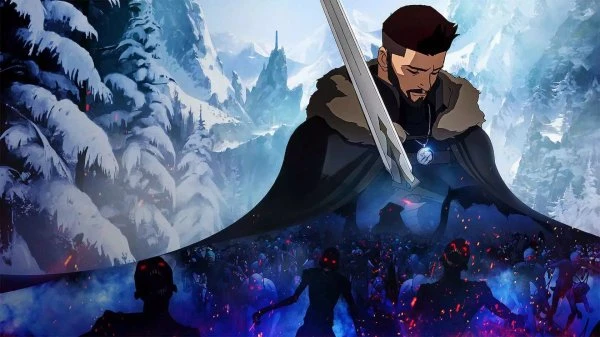
It also has the advantage of having been written by Beau DeMayo, an important, if controversial, figure in the history of the television franchise, who, by his own account, had a particular respect for the lore established by the source material that was not shared by everyone in the Writers' Room. This account is found in an interview he gave after leaving The Witcher to run a new X-Men "spin off" show for Disney, in which he said that he did not want anyone on his new team who had the open contempt for the show's source material that he had encountered on The Witcher.
This is obviously a very sensible position for any producer of a show based on an established intellectual property to take. After all, when a studio pays the huge sums necessary to acquire the rights to stories that are already very popular, they are paying not just for story ideas, a cheap commodity in themselves, but for access to the existing fan base for those stories. The goodwill of those fans is therefore a tangible asset in accountancy terms. It is the bread and butter on which a successful television franchise can be based, with any additional market segments it can attract being the jam. These are very basic and obvious marketing principles that major studios seem to have forgotten recently.
Whether it was sensible for DeMayo to be so public about being sensible is a matter for debate. He gained the respect of fans for speaking the truth and confirming what many had long been feeling - not just about The Witcher but about Hollywood writers in general. However, he has probably done his career no favour by putting the first of several torpedoes into his former employer, because his interview was the first in a chain events that have since effectively sunk The Witcher as a television franchise.
All this was, of course, in the future when DeMayo wrote Nightmare of the Wolf. Rewatching it in the light of the subsequent controversy, one has to conclude that he is a good writer with a shrewd awareness of the commercial importance of keeping established fans happy whose writing lives up to his principles as stated in that interview.
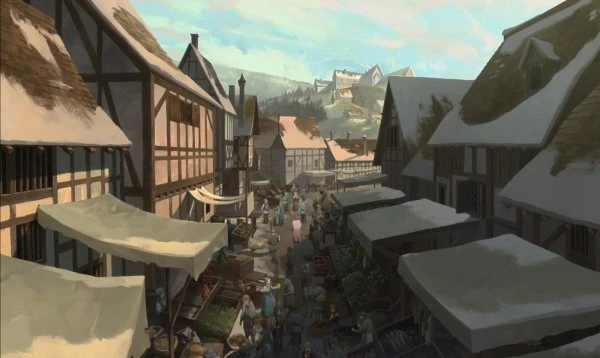
He gives us an original, free standing story that fits in neatly with the fantasy universe portrayed in Season One of The Witcher proper. Indeed, one of the main criticisms of that first season was that it did not invest enough storytelling time in world-building, and DeMayo seems to have learned from this and gone out of his way to explain things. Nightmare of the Wolf actually fills in a lot of the gaps left in Season One of The Witcher. Those of us who have not read the original novels are given a much better idea of who the Witchers are, how they came to be, how they operate, and why they are generally viewed negatively - with good reason as it turns out. It would have been helpful to know a lot of this before, and it is to DeMayo's great credit that he makes the situation a lot clearer in less than an hour and a half than a full season did in eight.
The story in Nightmare of the Wolf serves a "prequel" to the events in Season One of The Witcher and, unlike Blood Origin, it makes a number of direct references to what is shown in that season and the two that followed, giving committed fans the additional pleasure of enjoying an "Easter egg" hunt as they try to spot those references.
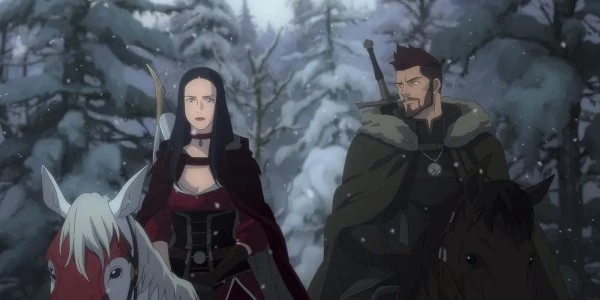
Our questionable "hero" is Vesemir, who had already been mentioned in Season One of The Witcher as mentor of that show's protagonist, Geralt of Rivia, and apparently voiced in a brief cameo by Theo James, who plays him in Nightmare of the Wolf. An older version of Vesemir, played by Danish actor Kim Bodnia (The Bridge), appeared in Season Two of The Witcher after the release of Nightmare of the Wolf, and, while Bodnia is excellent as always, it is a little confusing that he looks and sounds nothing like the James version in Nightmare of the Wolf.
There is also a guest appearance by Filavandrel, King of the Elves, who had turned up in Season One of The Witcher and who was to reappear in the next two, in which he is played by Tom Canton, the actor who voices him in Nightmare of the Wolf. Graham McTavish, who plays a completely different character in the two seasons of The Witcher that followed, voices Vesemir's own mentor, the even more ethically challenged Deglan.
Lara Pulver (Sherlock) is a xenophobic mage, Mary McDonnell (Battlestar Galactica) her more tolerant political opponent, and most of the rest of the cast, headed by Jennifer Hale as Vesemir's childhood sweetheart, are experienced specialist voice actors, many of whose names and voices may be familiar from a number of similar recent projects.
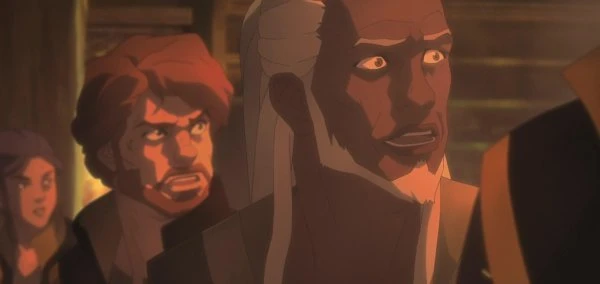
The plotting is brisk and efficient, with lots of fairly predictable twists and turns but no great surprises. If anything, it is all too brisk and efficient: it might have been worth taking just a few more minutes to emphasise certain points in order to clarify the storyline and to increase the emotional impact of some events. It is nevertheless impressive how a lot of good characterisation is crammed into a relatively short running time: the initially unsympathetic Vesemir shows growth; the "villains" are three dimensional and are all given understandable points of view; no one is entirely good or bad; and there is real poignancy in the subplot of the choice Vesemir makes between a life of adventure and the girl he left behind him.
The dialogue is often very witty. There is nothing very profound about it. There seems to be a message about not fearing those we do not understand, but this is rather undermined by what actually happens. By the end we see why Witchers are both distrusted and distrustful.

The animation, by the South Korean Studio Mir, is generally of a very high quality. Some of the landscapes and backgrounds are positively beautiful. Top animators seem to be putting a lot more effort into those aspects of their work and it is a very welcome development.
Against that, much of the movement is clumsy and the action scenes are variable. The characters are all drawn with their own distinct identities, so it is easy to tell them apart - not always the case in current computer based animation - but there is no great range of facial expression or mobility. All this is, of course, fairly typical of relatively cheap television level animation, so we are used to it and it is no great distraction.

Unlike Season One of The Witcher, where the story was all over the place in every sense, events in The Nightmare of the Wolf seem to be confined to a single Kingdom or geographic region, which seems to be mountainous with a cold climate, obviously referencing Northern or Central Europe in our world. This not only gives us the consistency and sense of place that was too often missing in The Witcher, but also provides an aesthetically pleasing Wintery feel to many of the scenes - contrasted with an artificial Spring towards the end that has real meaning.
The frequent and clever use of snow scenes gives the story the romantic atmosphere associated with traditional fantasy - but this is definitely no fairy tale. The lovely Winter landscapes provide the backdrop for some very bloody violence, leading to lots of symbolic red on white shots. From its opening sequence the show is, like its protagonist, ruthlessly honest about how innocence is defiled by violence.
It is also unafraid to show the other side of romantic fantasy in the form of the far less romantic lives of the poor. A brief shot of how the servants of a pretty manor all share the same crowded dormitory is enough to make us understand why the young Vesemir is desperate for a better life, even at the price of giving up a charming young girl who loves him.
If it was not connected to a franchise, Nightmare of the Wolf would be a superior example of an increasingly common type, the violent animated fantasy for adults and older teenagers. As part of a franchise, it more than pulls its weight and one is left wondering how different that franchise might have been if the live action parts had all been handled as intelligently as its animated stepchild.
Seen this show? How do you rate it?
Seen this show? How do you rate it?
Published on December 28th, 2023. Written by Laurence Marcus for Television Heaven.


